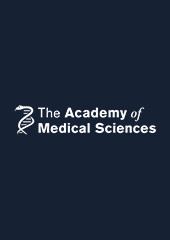Today we release the Academy’s fifth annual diversity report across all activities. This report shines a spotlight on how we are doing and will shape our activities in 2020..
This year’s data provides us with an essential barometer of how inclusive our work is. It shows we have made progress towards gender equality across our activities, but we need to do a lot better to engage Black, Asian, and minority ethnic researchers in our work. It also tells us we need to collect more information about disabled and LGBTQ+ researchers to understand how we are engaging these communities.
Why it matters
There is no doubt that increasing underrepresented groups participating in science is morally the right thing to do. It is also essential for high quality science. A diverse and representative medical science community can help research to address issues relevant to all sectors of society. Bringing together people who have different perspectives also helps to further the debate and discussion that is so important in science.
As an organisation dedicated to improving health across society, we have a responsibility to promote diversity and equality of opportunity both within our organisation and the wider academic workforce. The data we collect allows us to understand where we are with that commitment, and provides us with evidence to identify gaps and explore issues in our current ways of working. We also hope the data we are sharing is useful beyond the Academy in wider discussions on equality and diversity in science, medicine and research.
If we are not open about our shortcomings we can never hope to act to correct them, but if we do this right, we can improve medical research, and ultimately health for everyone.
What’s included
We split our work into seven sections. Each section outlines areas of improvement and concern before breaking down key data. We include relevant benchmarking where possible against other organisations and sector norms.
Since 2015, we have increased the amount of data we collect, our data analysis and our transparency. Our data collection systems in some areas are strong, but others – particularly policy work and decision-making panels – are still lacking. This will be a priority area for the Academy to improve upon, because without robust information we cannot understand how to improve.
This report focusses on protected characteristics, however our diversity work also encompasses regional and subject diversity to ensure our Fellowship represents expertise from basic research right through to translation and clinical application from across the UK.
What the data tells us
Ensuring diversity in our work is a challenge with a Fellowship that is 19% female and 6% Black, Asian or from a minority ethnic group, and we are mindful of overburdening minority academics. We do not apply quotas or targets on any of our activities, but instead use a flagging system to highlight areas of poor representation for further discussion.
For gender, we raised the level at which activities are ‘red flagged’ for further discussion from less than 30% female last year, to less than 35% female this year. Almost all the Academy’s work has met that raised level this year.
Black, Asian, and people from minority ethnic backgrounds are generally under-represented across the Academy’s work. We have more to do to diversify decision-making committees, such as Council, grants panels and Fellowship selection committees, to include people of colour.
The areas which have more complete data collection for ethnicity, such as grant applications, suggest disparities in representation between white researchers and researchers of colour. The numbers are small, but these disparities continue in success rates - mirroring recent data releases from UKRI and Wellcome. We will be working with our colleagues across the sector to understand this further.
Where next
There is much more for our Academy to do. The challenges identified by this year’s diversity data are large and complex. We would be naïve to think there we will be able to solve them with quick fixes or that we can address them without support from others in the community. Most importantly any solutions need to be developed in partnership with the underrepresented groups themselves.
So this year we will take a bigger picture look at our diversity challenges, including:
- In the next six months we will be seeking to learn from and support existing initiatives from areas of the research community currently underrepresented in our work. We hope this will be a stepping stone to greater collaboration in the future.
- We are also reviewing our events to try and make them more inclusive, supported through our membership of the EDIS network. There’s no point reaching out to people if they do not feel welcome once they start to interact with us.
- We will continue to improve our data collection completeness and quality, and are introducing quarterly monitoring in some areas to help us be more responsive to issues arising through the year.
This is a complex area, and as an organisation we will be learning as we progress. We know our conversations over the next twelve months might lead us into new and unexpected areas. If you would like to comment or give us feedback, please contact Nick Hillier, Director of Communications, at [email protected]. We will always listen with an openness and willingness to learn how to do things better.
